Thermometers for Every Home and Clinical Need
Explore the best thermometers for accurate, fast, and safe temperature readings—at home, in healthcare, and beyond.
Summary
Thermometers are vital tools used to measure body, air, liquid, or surface temperature. Whether you’re monitoring a child’s fever, storing vaccines, or cooking meat, the right thermometer ensures accurate results quickly and safely.
This guide breaks down the various types of thermometers available today from digital thermometers to infant thermometer models—and explains how each is used in clinical, household, and professional settings. Using reputable sources and the most-searched keyword variations like baby thermometer, fridge thermometers, and meat thermometers, this resource aims to educate and empower buyers in Australia to choose the right product.
What Are Thermometers and How Do They Work?
Thermometers are devices used to measure temperature using a variety of principles—typically expansion of liquid (like mercury or alcohol), resistance of metal sensors, or infrared radiation. The most common household and medical thermometers today are electronic, offering digital readouts that are fast and highly accurate.
Types of Temperature Sensors:
- Thermistor: Used in digital thermometers for fast human body readings.
- Infrared Sensors: Found in forehead and tympanic thermometers for no-contact use.
- Bimetallic Strips or Probes: Used in meat thermometers and fridge thermometers for robust environmental monitoring.
For clinical purposes, thermometers are essential diagnostic tools. The Therapeutic Goods Administration (TGA) in Australia regulates the quality and safety of medical thermometers used in hospitals and pharmacies nationwide.
Common Types of Thermometers
Selecting the right thermometer depends on the purpose—whether it’s for body, food, or environmental readings. Below is a breakdown of the most popular types, including their applications and advantages.
-
1. Digital Thermometers
Used for oral, rectal, or underarm (axillary) temperature readings, digital thermometers are fast, safe, and widely recommended by doctors. They’re ideal for home use and typically feature a flexible tip, memory storage, and a quick-read LCD display.
- Suitable for all age groups
- Offers readings within 10–30 seconds
- TGA-compliant models readily available in Australia
-
2. Infrared Thermometers
These contactless thermometers measure heat emitted by the skin or surface using an infrared sensor. Forehead and tympanic (ear) thermometers fall into this category and are ideal for children or infection control scenarios.
- Non-invasive and hygienic
- Suitable for infant thermometer and baby thermometer use
- Often used in aged care and childcare centres
-
3. Fridge Thermometers
Used to monitor temperature-sensitive items like vaccines, medications, or food, fridge thermometers are indispensable in pharmacies, clinics, and even homes. They help ensure safe storage within recommended temperature ranges (typically 2–8°C).
- Often features a digital display with max/min memory
- Models available with external probes for vaccine fridges
- Compliant with cold chain storage guidelines
-
4. Meat Thermometers
These thermometers are used to check internal cooking temperatures of meat, ensuring it reaches food-safe levels. Many are digital with a stainless-steel probe, providing accurate readings within seconds.
- Ensures safety when cooking poultry, beef, or fish
- Available as instant-read or oven-safe models
- Essential for food safety in homes and restaurants
-
5. Baby and Infant Thermometers
Designed for delicate skin and faster detection, these include underarm digital models, ear thermometers, and forehead scanners. Search terms like newborn thermometer, baby thermometer, and infant thermometer reflect high demand for accurate and child-safe options.
- Quick, quiet, and gentle readings
- No need to wake or disturb sleeping babies
- Often includes fever indicator lights or colour codes
FAQs About Thermometers
What are thermometers used for?
Thermometers measure temperature in people, environments, or objects. Common uses include fever detection, cooking, and cold storage monitoring.
How do thermometers work?
Digital and infrared thermometers convert electrical signals into temperature readings using sensors or light detection.
Are digital thermometers better than mercury?
Yes. Digital thermometers are safer, faster, and more accurate. Mercury thermometers are no longer recommended due to toxicity risks.
What thermometer is best for babies?
A baby thermometer or infant thermometer with infrared, underarm, or tympanic features is ideal for gentle, non-intrusive measurement.
Featured Products
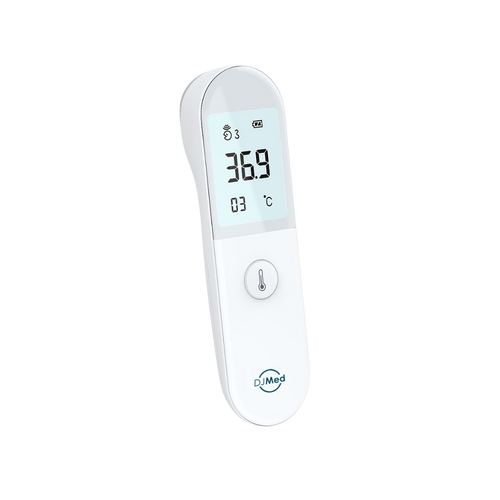
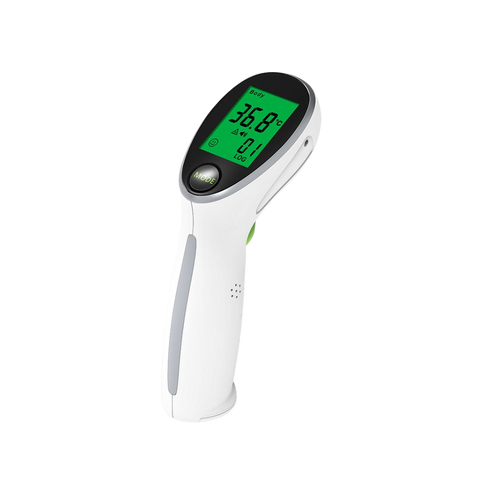
Thermometer Use in Health and Safety
Accurate temperature readings play a major role in clinical assessments and public health safety. The ability to detect fever early is especially important during outbreaks of infectious diseases such as influenza or COVID-19.
Clinical Use:
- Hospitals and GP Clinics: Rely on high-grade digital and infrared thermometers for speed and hygiene.
- Aged Care Facilities: Use infrared thermometers to minimise cross-contamination.
- Vaccination Clinics: Depend on fridge thermometers to monitor cold chain compliance.
Household Use:
- Parents: Use baby thermometers to monitor fevers in infants or toddlers.
- Travellers: Pack compact digital thermometers in first-aid kits.
- Home Chefs: Use meat thermometers for food safety.
The Australian Government’s Department of Health notes that maintaining proper cold storage for medicines and vaccines is a legal requirement. Reliable fridge thermometers ensure these regulations are met.
How to Choose the Right Thermometer
When selecting a thermometer, it's important to consider both your intended use and who the user will be (e.g., infants, adults, clinicians). Below are some guidelines to help choose:
1. For Medical Use at Home
- Go for a digital thermometer for everyday monitoring.
- Choose an infrared forehead or ear thermometer for young children.
- Ensure the thermometer is TGA-listed or recommended by your GP.
2. For Professional Clinical Use
- Look for hospital-grade infrared thermometers with no-touch features.
- Select fridge thermometers with data logging for vaccine storage.
- Consider bulk units with replaceable probes for hygiene.
3. For Cooking or Industrial Use
- Buy an instant-read meat thermometer for internal food temperature.
- For fridges or freezers, opt for digital or dial fridge thermometers with probe access.
External resource: NSW Health Cold Chain Toolkit – for compliance on vaccine storage using thermometer readings.
When in doubt, consult with your pharmacist or healthcare provider for a recommendation based on your use-case.
Best Practices for Using and Maintaining Thermometers
Using a thermometer correctly is essential for obtaining an accurate reading. Here are some best practices for different types:
Digital and Infrared Thermometers:
- Always clean the tip or sensor after each use.
- Follow the manufacturer’s wait time between readings.
- Avoid using immediately after eating, drinking, or physical activity.
Meat and Fridge Thermometers:
- Calibrate regularly if applicable.
- Ensure proper probe placement for meat or fridge storage.
- Store in dry environments to prevent moisture damage.
Baby Thermometers:
- Choose models designed for ear or forehead use.
- Avoid placing directly on wounds or irritated skin.
- Always read manufacturer instructions for correct positioning.
Thermometers are precision tools—careful use and storage ensure longevity and consistent performance.
Conclusion
Thermometers are indispensable in modern life—from checking your child’s fever to ensuring food safety or maintaining medical cold storage. With the wide variety available today digital thermometers, fridge thermometers, meat thermometers, and baby thermometers you can select the ideal tool for your needs.
Accuracy, ease of use, and safety should guide your purchase. Whether you're a parent, clinician, chef, or pharmacist, the right thermometer offers peace of mind and confidence in every reading.
Need a reliable thermometer for your home, clinic, or kitchen?
Explore our expert-curated selection of TGA-listed digital thermometers, baby thermometers, and more.
📞 Call 1300 615 193 or order online at our website.
Thermometers provide fast, accurate temperature readings for home, healthcare, and professional use. This collection includes reliable thermometers designed for fever detection, hygiene-sensitive environments, food safety, and medical storage—helping you monitor temperature with confidence and precision.
What this collection includes:
• Digital thermometers for oral, underarm, and rectal use
• Infrared forehead and ear thermometers for contactless readings
• Baby and infant thermometers for gentle fever monitoring
• Fridge thermometers for medicine and vaccine storage
• Meat thermometers for safe cooking temperatures
• TGA-compliant thermometers for clinical and aged care use
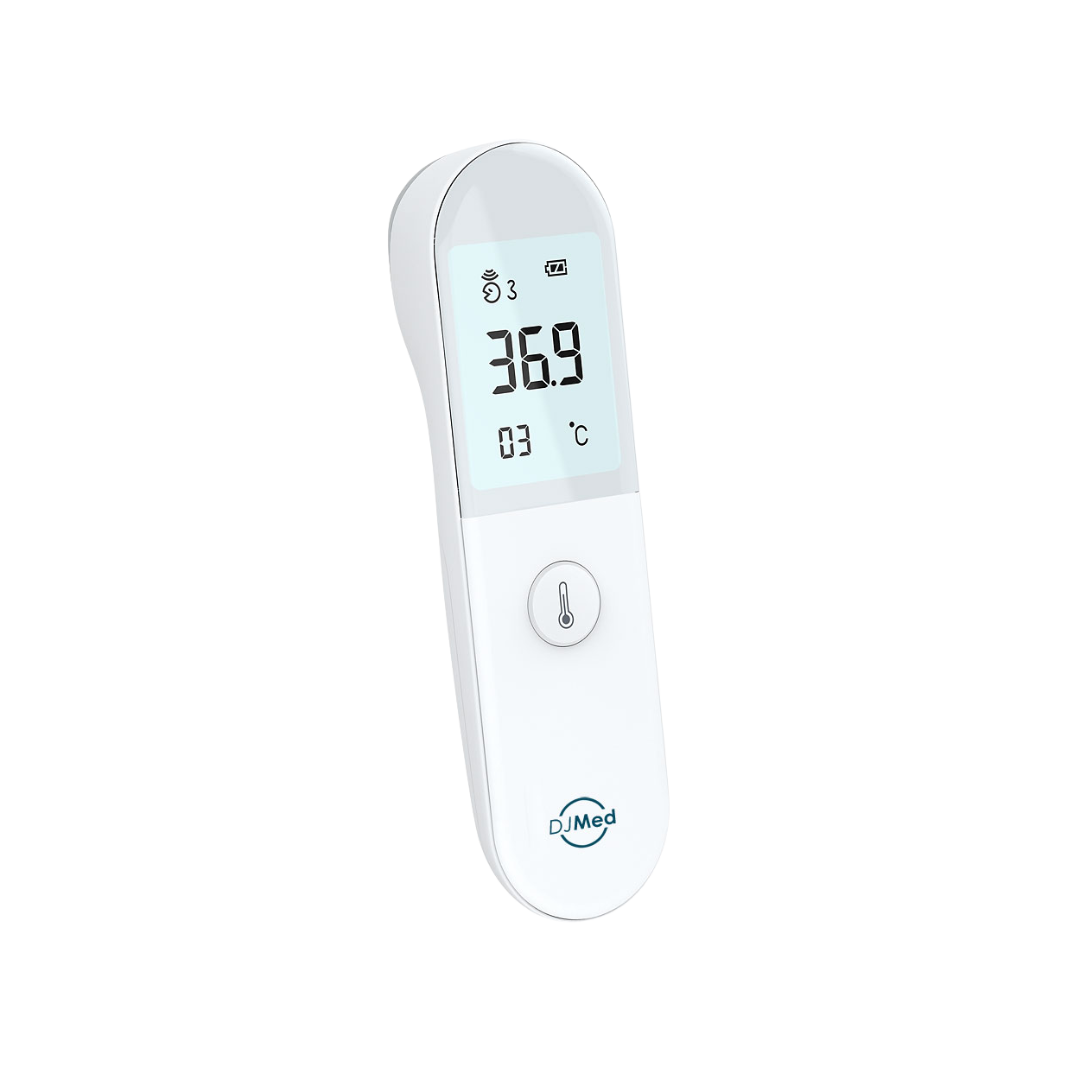
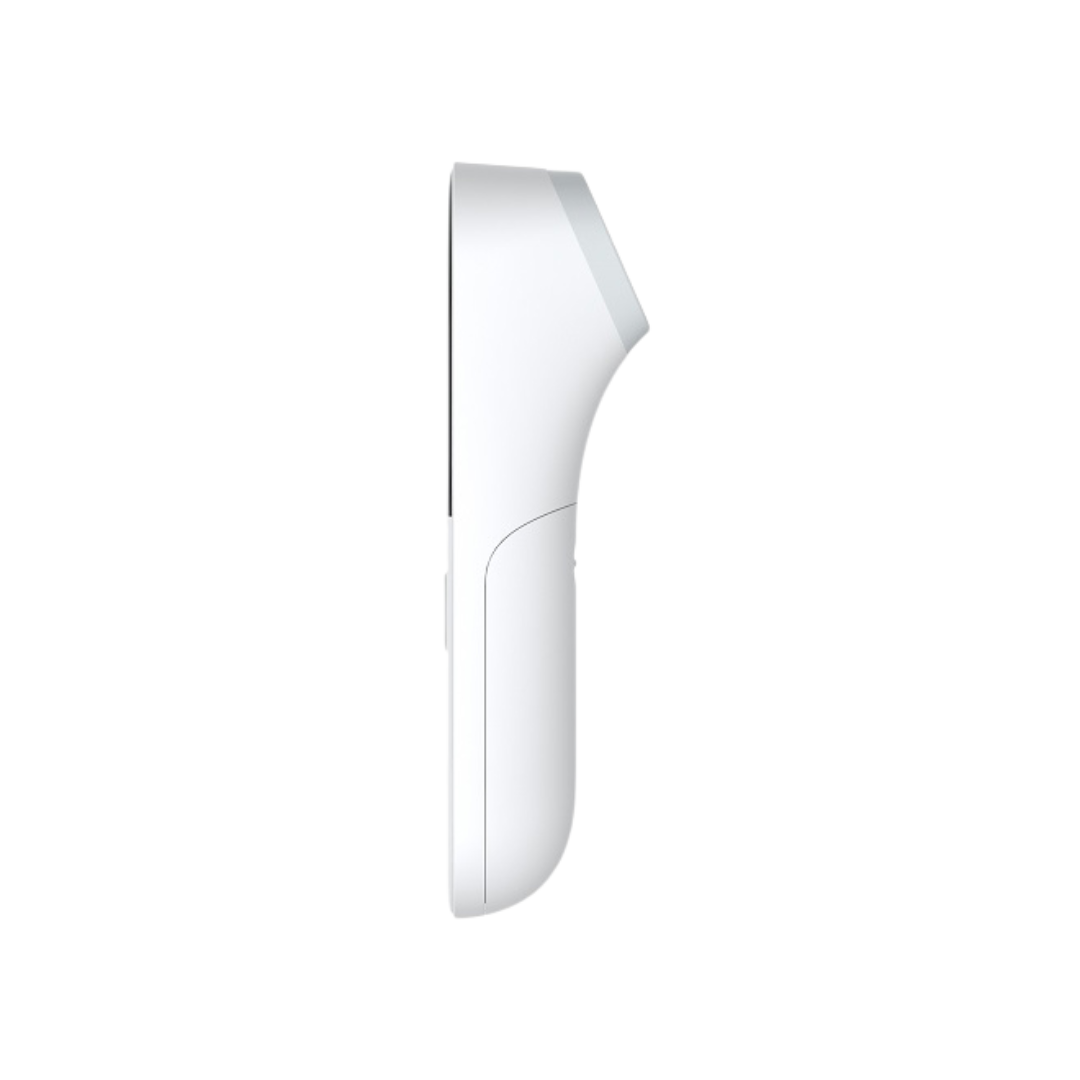
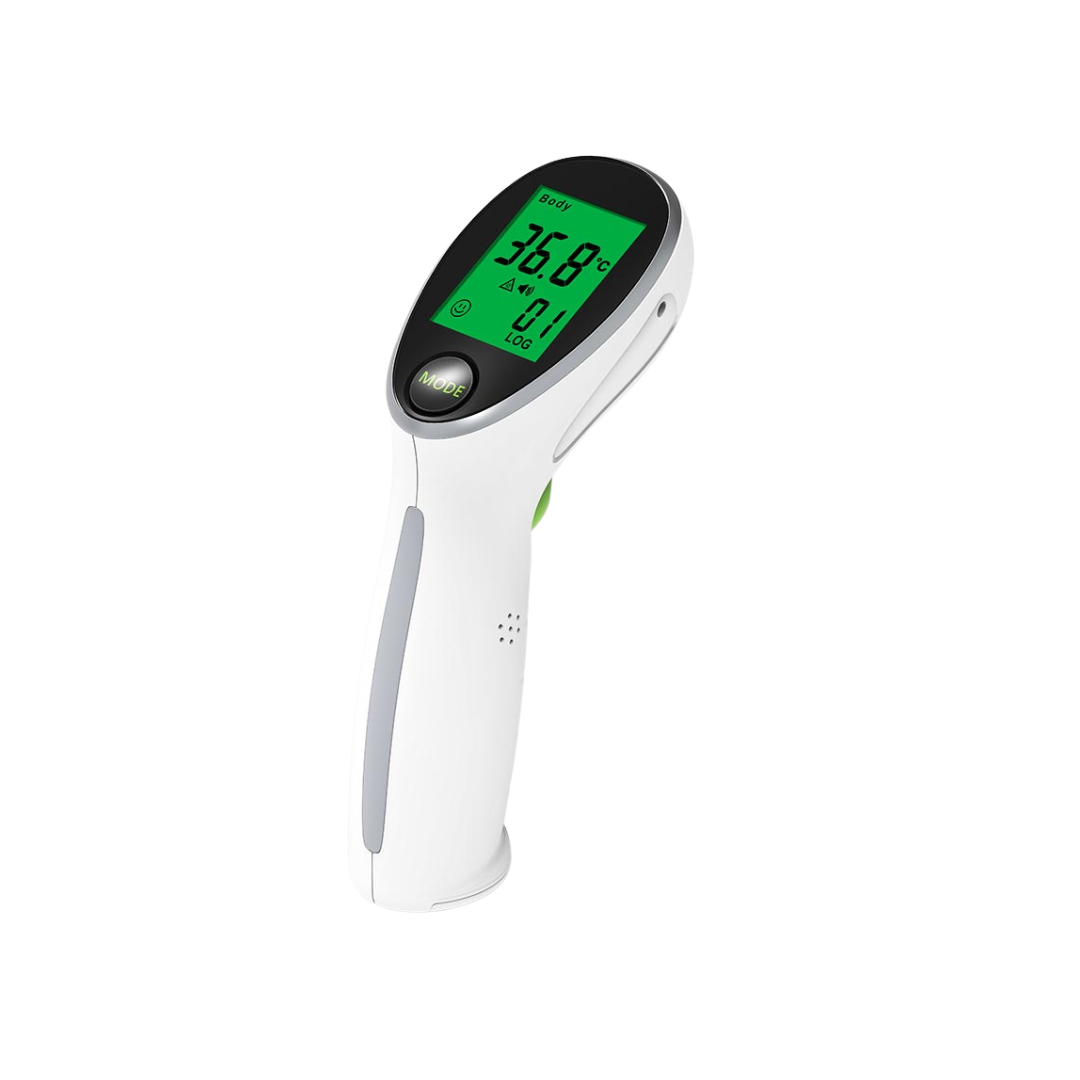
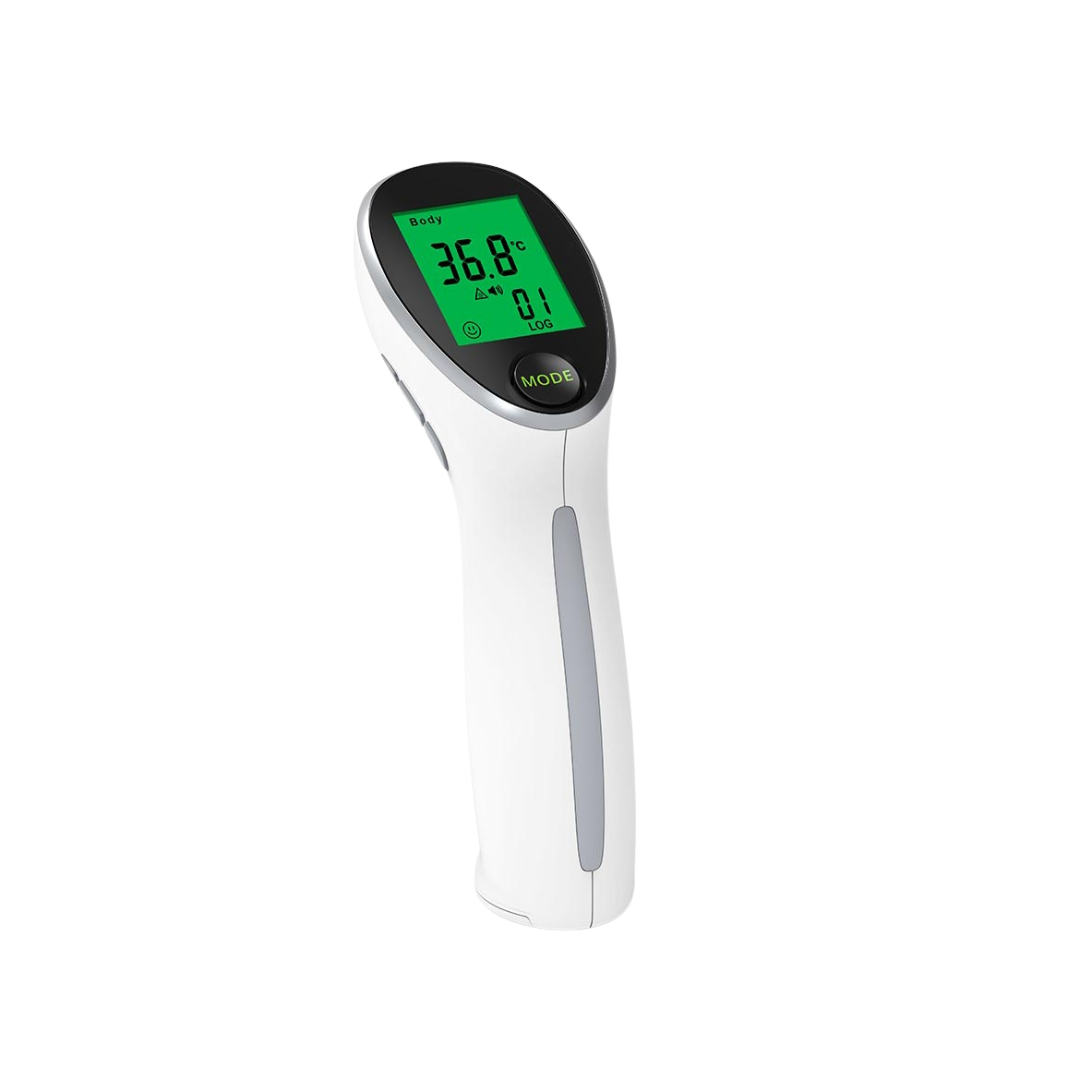
Recently viewed
FAQs
A digital thermometer is ideal for everyday home use, while infrared thermometers are preferred for quick, contactless readings.
Infrared forehead or ear thermometers are popular for babies as they provide fast, non-invasive temperature checks.
Yes. Quality digital thermometers provide reliable, clinically accurate readings when used correctly.
Fridge thermometers help ensure medicines and vaccines are stored within safe temperature ranges, supporting health and safety compliance.
